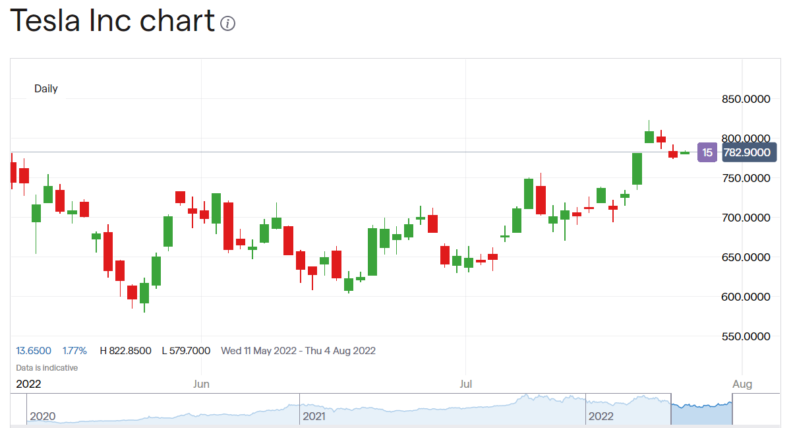Key points:
- Tesla insurance is clearly a sensible and possibly profitable product
- But is it actually material to the prospects for TSLA?
- Opinions differ but perhaps not
Tesla (NASDAQ: TSLA) stock may or may not be usefully boosted by the rollout of Tesla insurance. What we'd like to know as traders is which way this is going to go. One set of thoughts should concentrate upon the short term, the other set on the long. The results may well be different as to each time span. There is, clearly and obviously, substantial speculation in what follows. We'll also not be reyling upon Tesla's own estimations of what that insurance system might do – predictions from that source tend to be possibly excessively optimistic.
What Tesla is doing with insurance is offering to insure the drivers of its own cars, obviously enough. This is backed up with Tesla being able to know great detail about the driving styles of its drivers. So, logically, it should be possible to vary premiums according to how good or bad a driver is – or, perhaps, how likely they are to have an accident. This is indeed what Tesla insurance does as well. Ties in what the company knows – from software and hardware – about how the car is driven with the premiums that the driver gets charged. This should – should – get rid of one of the great insurance problems, moral hazard. This is the idea that when someone is insured then they'll take more risks.
Moral hazard does plague insurance markets and the idea of being able to vary premiums in real time – or by the month etc – rather than simply using historical numbers from before the policy starts could indeed reduce costs. That, in turn, means that Tesla can preferentially insure lower risk drivers and even price out of contention really high risk ones. That makes the underwriting book look much better.

Also Read: How To Buy Tesla Shares
It's also true that a successful insurance company – even if captive – will have a substantial positive cashflow and also investment earnings from the premiums being held before claims. So, a better method of car insurance has its merits. Being able to offer better prices should produce a customer base, lower underwriting losses would be good and then there's that investment of the premiums income to be thought of.
On the other hand the thing that makes the US auto insurance market profitable at the underwriting level is also what makes it hard to get into. It's licenced state by state and the rules aren't the same everywhere. By one estimate Tesla insurance is only available on that real time driving data in 10 states so far, with California being based upon historic. The very cost and difficulty of getting into the market is what makes it profitable.
But the other thing to consider is whether this is even material to Tesla. Sure, getting it right would obviously be a nice addition to the corporate valuation. But even in the American system auto insurance isn't all that profitable, so perhaps we should not take it as being a grand part of the Tesla corporate valuation.
Short term valuations might well be based upon how folk think this will go. Longer term, well, just how big will it get?




